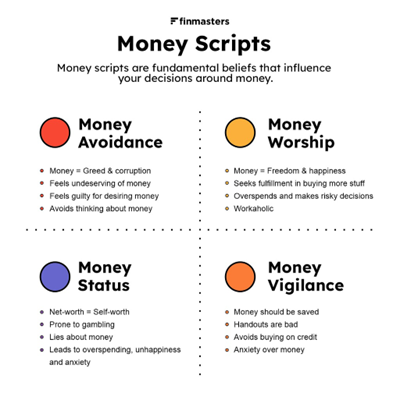Understanding our relationship with money is crucial for making smarter financial decisions and achieving financial freedom. Our childhood experiences, beliefs, and values shape our “money story” and can lead to emotionally charged financial behaviors. In this article, we will explore the importance of understanding the psychology of money and how it can help us build a strong financial foundation.

Discovering Your Money Story
Our early experiences with money play a significant role in shaping our relationship with finance. Talking to children about personal financial decisions can help them make better financial decisions in the future. “Money stories” are personal feelings, values, and beliefs we hold about money that are shaped in subtle ways. Psychologists have identified four broad patterns of belief about money called “money scripts.”

Understanding Money Scripts
Money avoidance is a belief that money is bad and can lead to overspending and difficulty sticking to a budget. Money worship is the belief that money fuels happiness and solves most of life’s problems. Money vigilance is the money script of the ultra-wealthy, valuing a bargain and protecting their capital, but can lead to financial anxiety or reluctance to enjoy money. Recognizing and understanding these money scripts can help individuals develop a healthier relationship with money and make smarter financial decisions.

Financial Wellness Advice from Millionaires and Billionaires
Reading books on personal finance can offer valuable insights and knowledge gained through the experiences, logic, and positive mindset of millionaires and billionaires who have achieved financial growth. These books aim to motivate and help readers build a strong financial foundation, ultimately leading to financial freedom and stress-free life.

Education and Service: A Lifelong Commitment
Education is a means for many individuals, including veterans, to expand their ability to fulfill a lifelong need for altruistic and selfless service. Columbia University, for example, is considered a model for veteran education and support, with around 700 US veterans enrolled in various programs. These students come from diverse backgrounds and viewpoints, with experiences ranging from flying helicopters to working as electricians and translators. By pursuing education, they continue to serve and contribute to society in meaningful ways.
